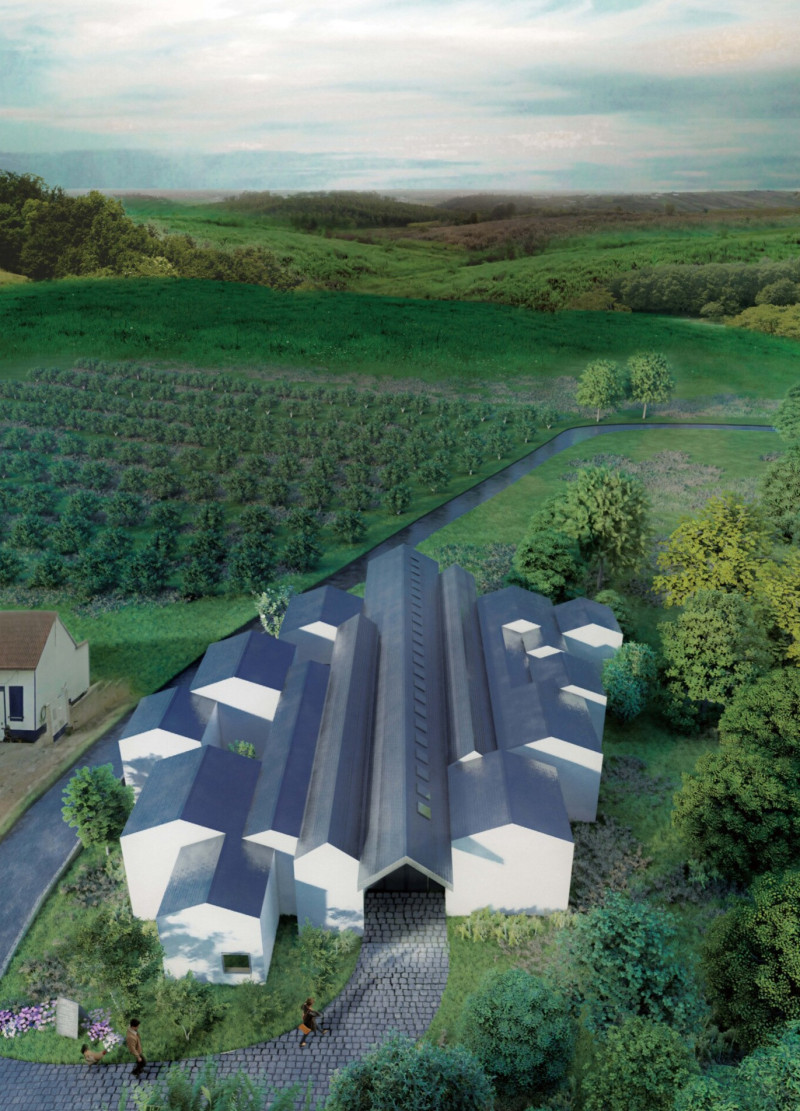5 key facts about this project
The design incorporates a range of materials, including high-insulation timber, local slate, stucco, concrete, glazing, metal, and natural stone. This careful selection promotes not only aesthetic appeal but also thermal efficiency and structural integrity. The roof design mimics the natural ridges of the landscape, reinforcing the connection between the built environment and its setting.
The architectural outcome of "Traverse" is centered on its main facilities while incorporating a thoughtful arrangement of outdoor pathways and communal spaces, facilitating movement and interaction among users. Design elements are adaptable, allowing the project to serve various functions throughout the year, which enhances its utility and connection to community activities.
Sustainability is a key element distinguishing "Traverse." The project utilizes passive design strategies, such as strategic placement of glazing for natural light and ventilation, alongside the collection of rainwater through the roof structure. This integration of ecological practices within the design ensures minimal impact on the surrounding environment while creating an educational opportunity for visitors regarding local biodiversity.
Community engagement is another unique aspect of this project. By creating spaces designated for shared experiences, such as harvesting tours and workshops, "Traverse" leads to increased social cohesion among visitors and locals alike. The design promotes not only the appreciation of local wine and agricultural practices but also reinforces cultural ties through its architectural vocabulary and material choices.
Overall, "Traverse" serves as a significant example of contemporary architecture that prioritizes environmental harmony, community interaction, and functional flexibility. For those interested in gaining deeper insights into the design, including architectural plans, sections, and various architectural ideas, exploring the project presentation further would provide valuable information.


























